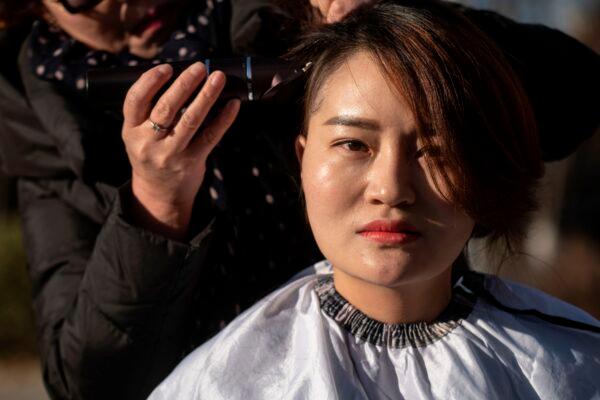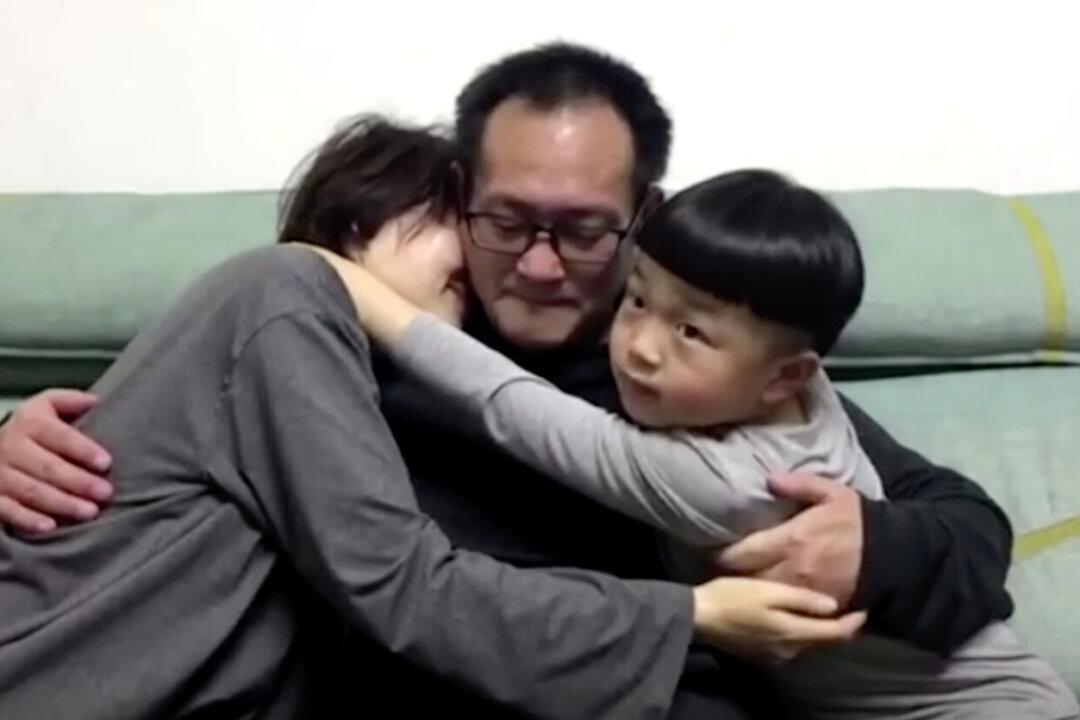Li Wenzu, the wife of Chinese human rights lawyer Wang Quanzhang, peered into the door peephole of her apartment in Beijing, one hand grabbing the door handle, the other holding on to the wall to keep her balance.
Wang was recently freed after serving a 4.5-year sentence on charges of “subverting state power”—a euphemism for activities not endorsed by the Chinese regime.
Li’s 7-year-old son Quanquan dashed back and forth as he swung his toy sword. As his father entered the room with his luggage, Quanquan hid behind the cabinet. Their gray-black cat fled at the sight of police who accompanied Wang.
It was the first time he came home after his release in April this year, after having served nearly 5 years in prison. The police had not allowed him to return home since he was freed.
The couple held each other for around two minutes in between sobs—with Quanquan soon in Wang’s arms.
A video recording of their reunion on April 27 was videotaped and shared on social media.
In an interview, Wang said he felt like he was in a “trance.” “Finally being able to hug my wife and kid—this once was a common routine, but it took five years for me to do so,” he said.
Human Rights
Wang, 44, represented political activists, victims of land expropriation, and adherents of the persecuted spiritual group Falun Gong.He was arrested in July 2015 as part of a nationwide crackdown on hundreds of Chinese rights defense lawyers and activists. After completing his prison term, Wang was released on April 5.
Authorities sent him directly into quarantine in his hometown of Jinan city in the eastern province of Shandong, with police stationed in the apartment hallway to monitor him, according to Wang.
When Li complained of abdominal pain on April 26 morning and was hospitalized for appendicitis, Wang called the police multiple times requesting permission to see her, and eventually hailed a taxi after several hours of waiting.
“I couldn’t wait any longer,” he told The Epoch Times. But at the highway entrance, masked plainclothes police officers caught up with him and took him to the police station.
They agreed to escort him to Beijing after a day of negotiation. Li was on an intravenous drip until the evening of April 26.
As his sister prepared a feast of dumplings in the kitchen, in accordance with Chinese customs for family reunions, Wang expressed appreciation to his wife for raising their child alone while he was incarcerated.
Prison Life
Wang spent nearly four years in pre-trial detention while the police continually denied visitation rights to his family. After a secret trial in January last year, the U.S. State Department issued a statement saying they were “troubled” by Wang’s treatment, including the lack of legal counsel by his choice.Li and wives of other jailed human rights lawyers persisted in raising attention for his case, at one time shaving their heads in a symbolic protest against the Chinese regime’s “lawlessness”—the Chinese word for “hair” and “law” are homophones.

Li made frequent visits to Wang whenever she could, under the close watch of prison guards.
There’s “nothing to regret about,” he said to the broadcaster. “Other rights defenders have experienced [persecution], and so may I.”
In a recent interview with The Epoch Times following Wang’s release, Li said that Wang was suffering from an ear infection and had to press the phone closely to his ear during phone calls. She added that Wang’s memory had noticeably deteriorated since his time in prison.
“He tried to register a WeChat account yesterday, but just couldn’t remember the confirmation code. How many digits are there in a confirmation code?” Li said.





